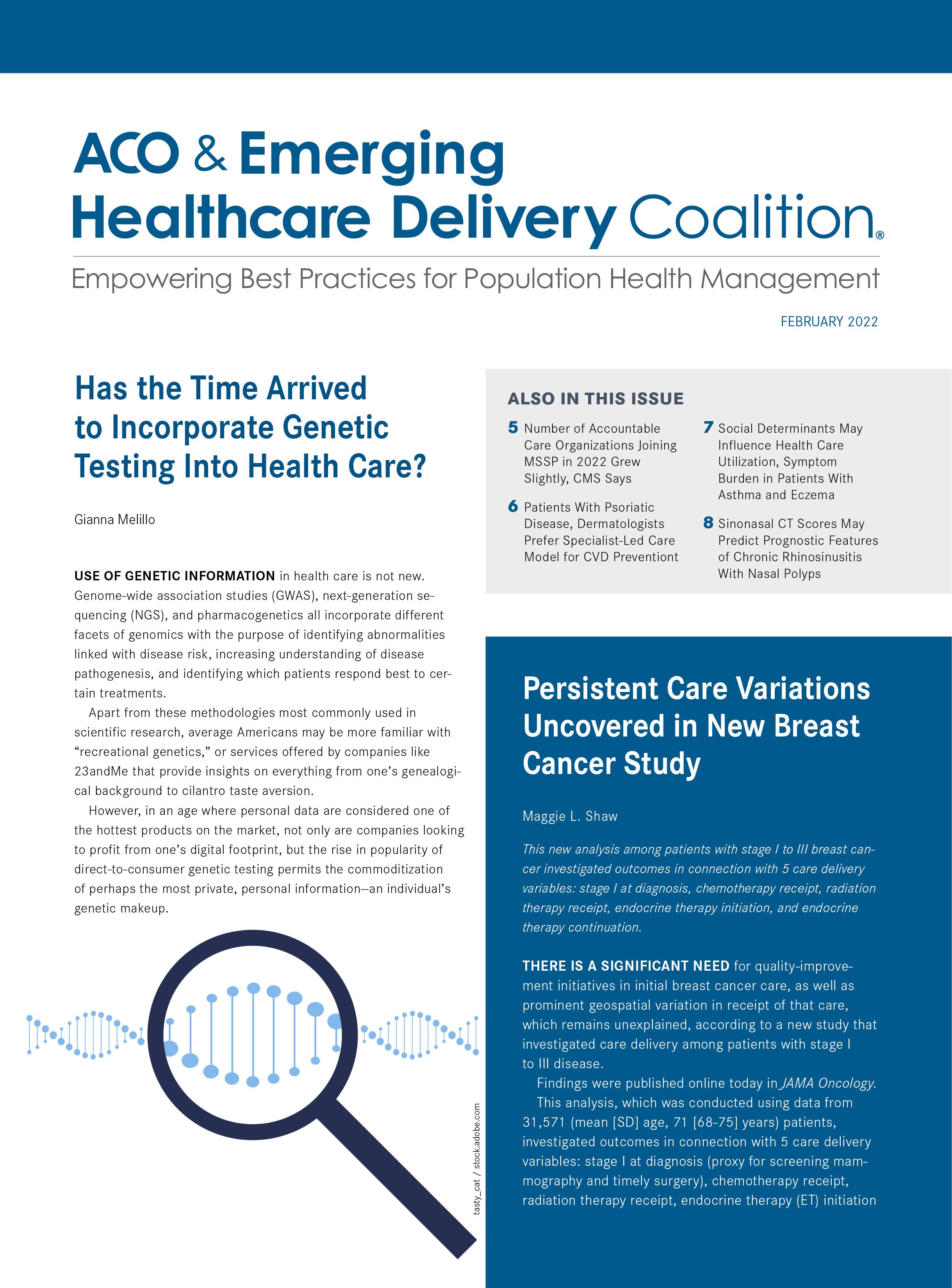- Center on Health Equity & Access
- Clinical
- Health Care Cost
- Health Care Delivery
- Insurance
- Policy
- Technology
- Value-Based Care
Patients With Psoriatic Disease, Dermatologists Prefer Specialist-Led Care Model for CVD Prevention
Patients with psoriatic disease and dermatologists reported their preferred strategies to improve cardiovascular disease risk management, with a specialist-led model of care touted by both groups.
In investigating a preferred cardiovascular disease (CVD) prevention strategy for patients with psoriatic disease, findings of a study published today in JAMA Dermatology show that dermatologists and patients positively responded to a specialist-led model of care.
Despite being at greater risk of developing CVD, screening rates and preventive care among patients with psoriatic disease, including those with psoriasis and psoriatic arthritis, have been noted as suboptimal.
In fact, researchers highlight that guidelines from the American Academy of Dermatology (AAD)/National Psoriasis Foundation (NPF) and the American Heart Association/American College of Cardiology specifically identify patients with psoriatic disease as a population in need of enhanced CVD prevention efforts.
“Patients with psoriasis who require treatment with systemic medications or phototherapy have been reported to have reduced life expectancy by 5 years after adjusting for traditional risk factors,” they added. “CVD is a leading cause of this excess mortality.”
As very few patients with psoriatic disease have an active relationship with a primary care physician, the study authors sought to explore clinician and patient perspectives regarding strategies to improve CVD prevention via specialist-led care.
Collecting electronic survey responses of dermatologists from the NPF and AAD between October 27, 2020, and April 1, 2021 (n = 183; 55.7% women), they conducted a best-worst scaling experimental survey study to rank the strategies according to their potential to improve CVD prevention among patients with psoriatic disease.
The primary outcome was the ratio scaled preference score (range, 0-100; higher is more preferred), as well as whether participants think specialist-led screening, including calculation of a 10-year CVD risk score and prescribing statins, seems feasible.
A total of 222 patients with psoriasis (n = 60) and psoriatic arthritis (n = 162) with an average age of 54 were also surveyed. The primary outcome measured was the likelihood to check cholesterol level, incorporate diet and exercise, or use statin therapy depending on whether they were recommended by a specialist or primary care physician, whether they would like their specialist to educate them about CVD risk, and whether they would find it convenient to have their cholesterol level checked by their specialist.
Of the dermatologists surveyed, strategies ranked as likely to improve CVD prevention in patients with psoriatic disease included clinical decision support (preference score, 22.3; 95% CI, 20.7-24.0), patient education (preference score, 14.1; 95% CI, 12.5-15.7), and clinician education (preference score, 15.8; 95% CI, 14.3-17.3).
“In addition, 69.3% (95% CI, 62.2%-76.0%) of dermatologists agreed or strongly agreed that checking lipid levels was feasible.”
Regarding those with psoriatic disease, patients reported they were as likely to engage in cardiovascular risk screening and management behaviors whether recommended by their primary care physician or their specialist.
Moreover, 60.0% of patients with psoriasis (95% CI, 52.0%-67.7%) and 75.3% of those with psoriatic arthritis (95% CI, 67.9%-81.7%) agreed that it would be convenient for them to have their cholesterol checked by their dermatologist/rheumatologist.
“Future studies are needed to evaluate whether these implementation strategies can successfully be adopted and whether they can improve outcomes associated with CVD risk management among patients with psoriasis and psoriatic arthritis,” concluded the study authors.
Reference
Barbieri JS, Beidas RS, Gondo GC, et al. Analysis of specialist and patient perspectives on strategies to improve cardiovascular disease prevention among persons with psoriatic disease. JAMA Dermatol. Published online January 19, 2022. doi:10.1001/jamadermatol.2021.4467

